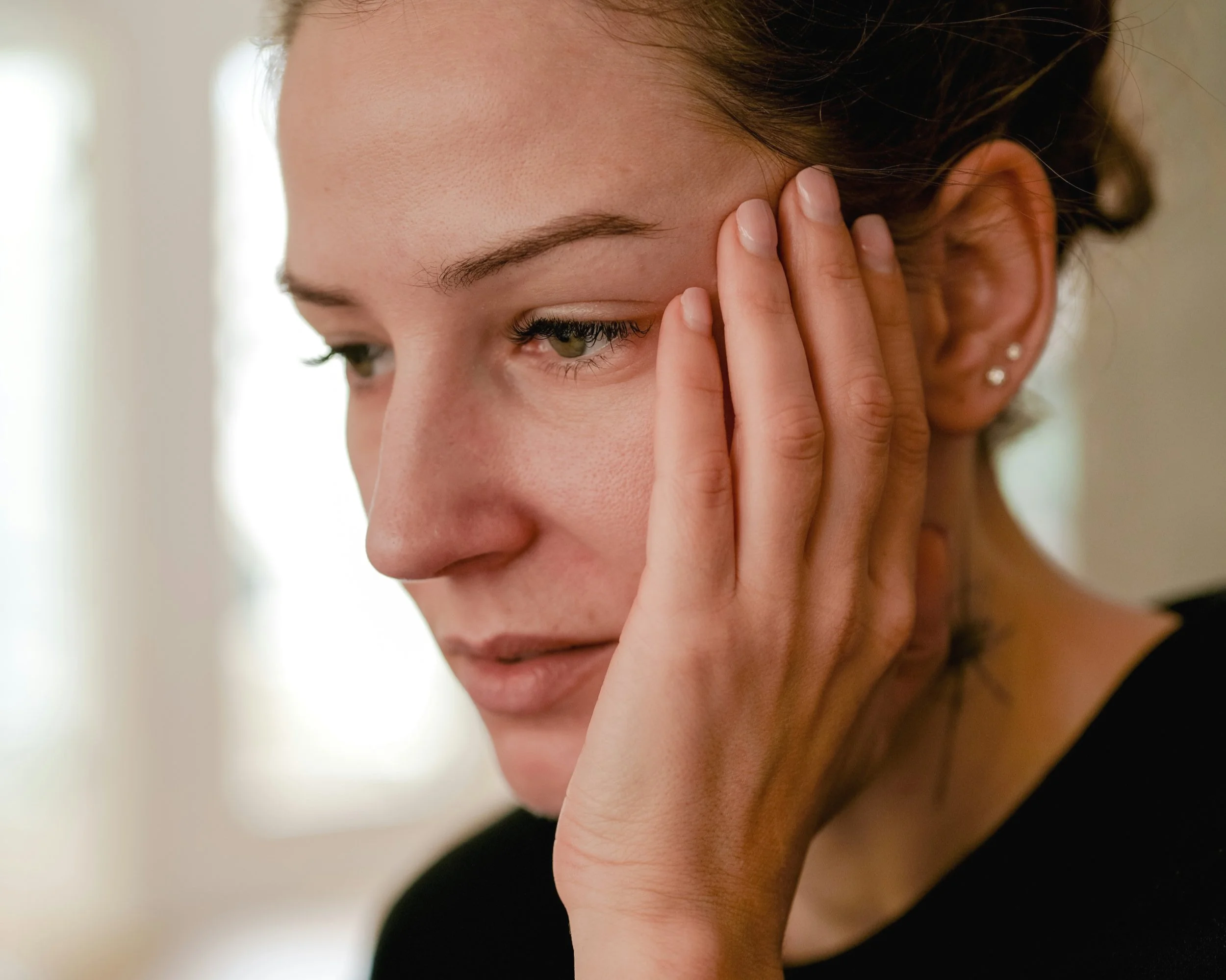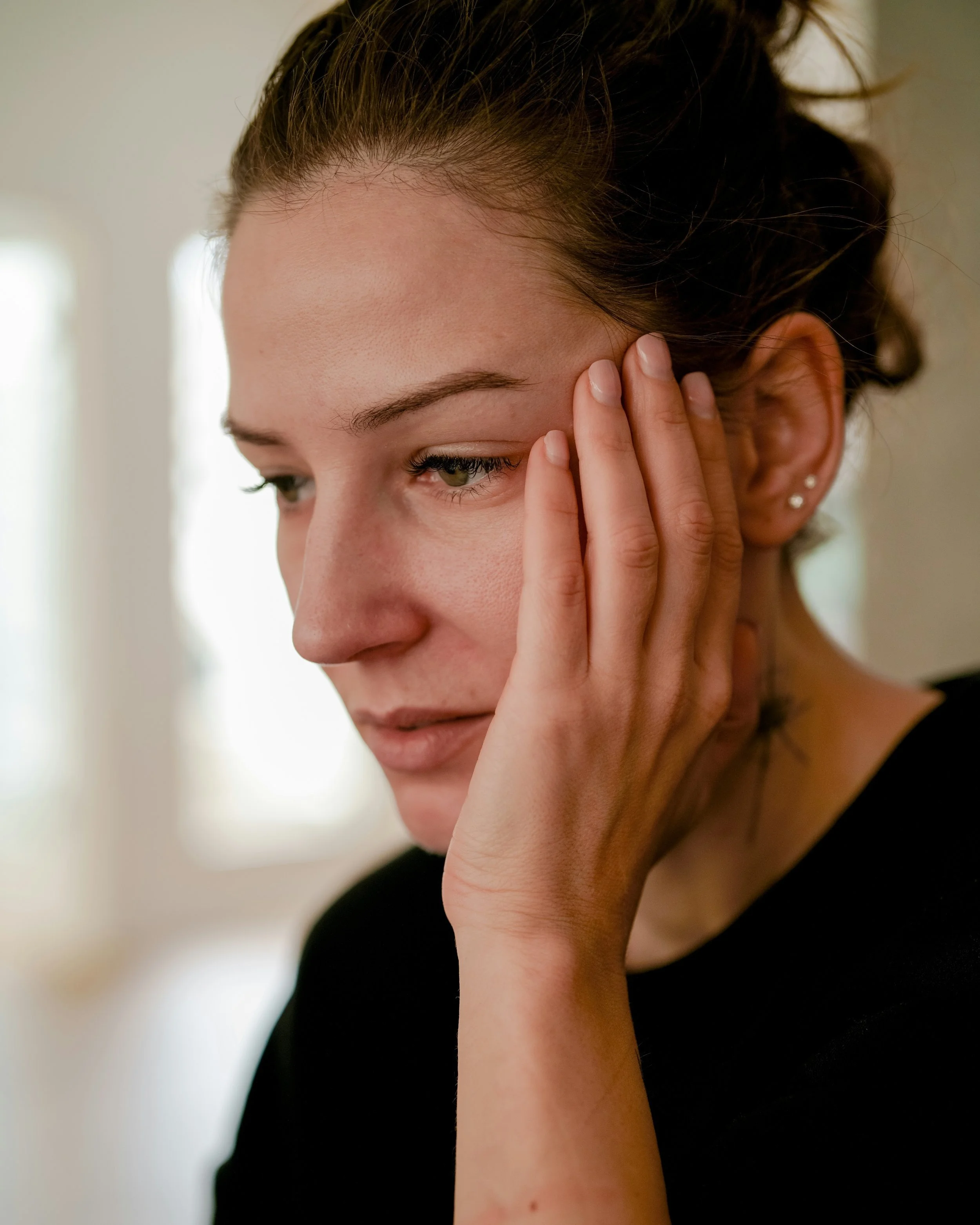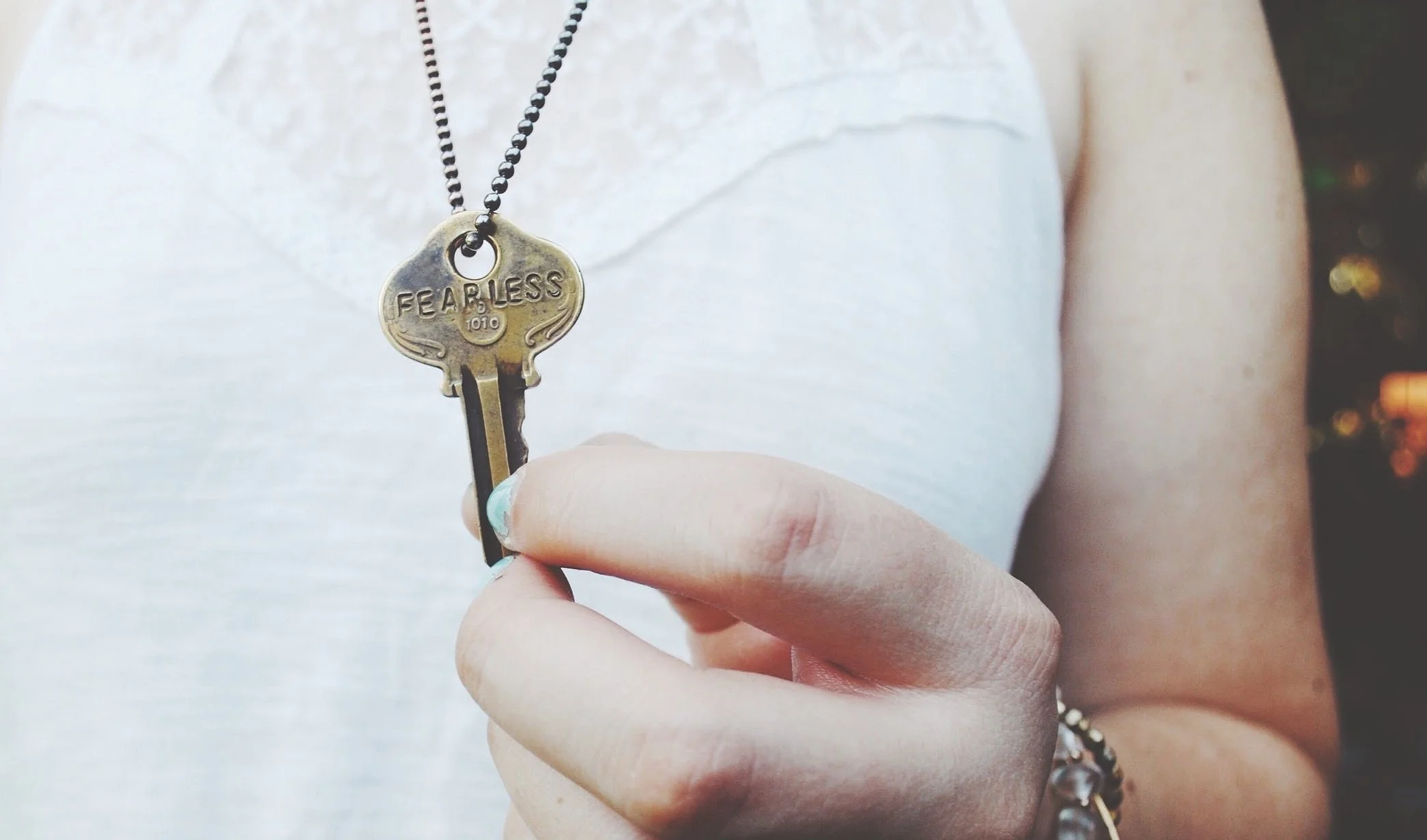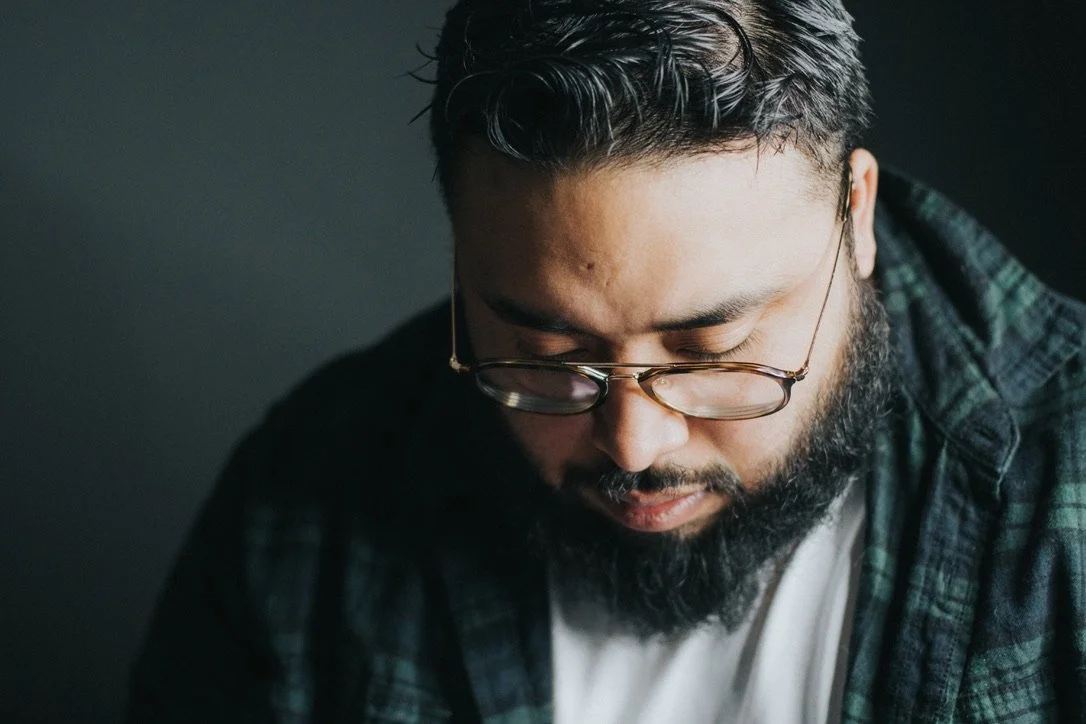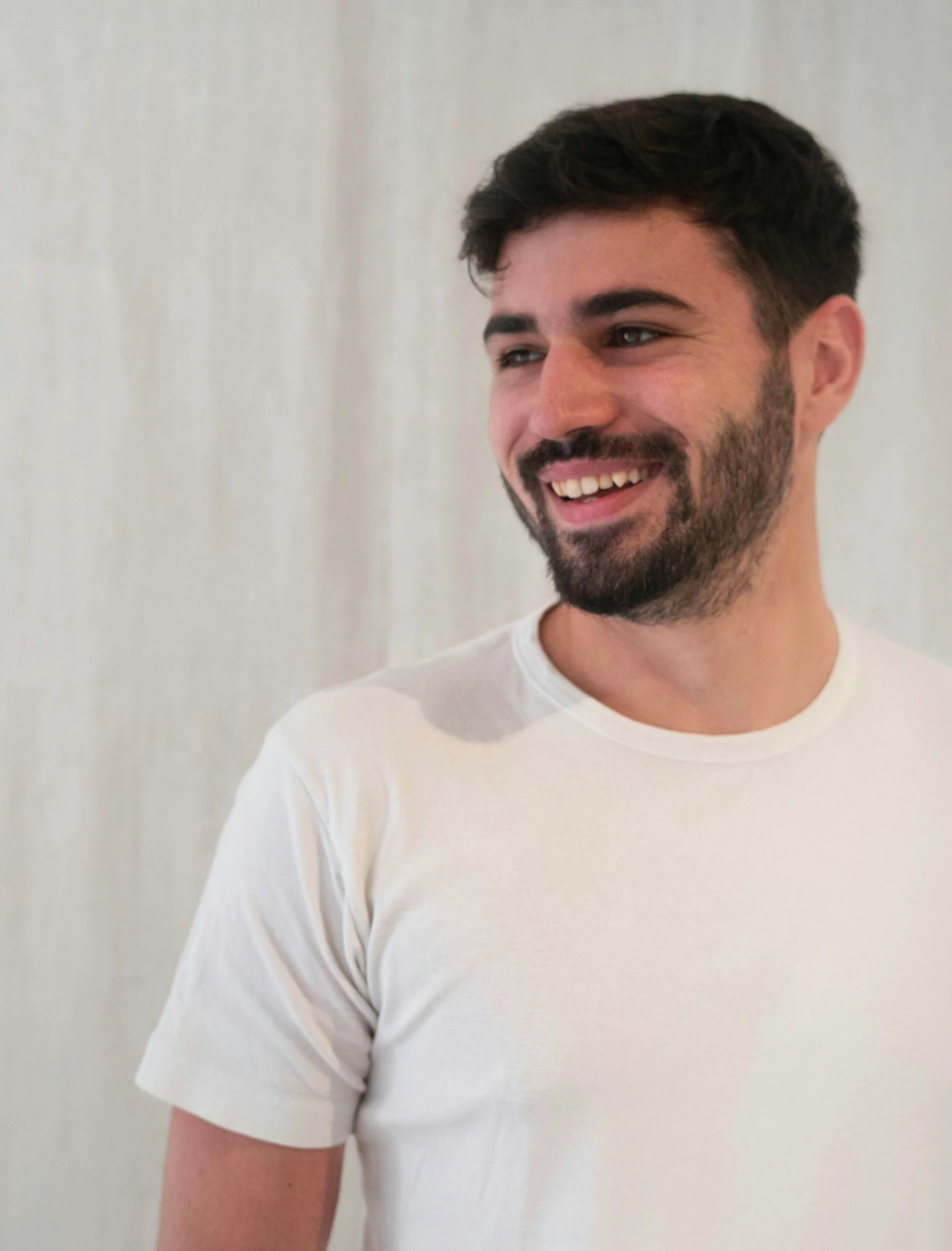
The Blog—Real-life riffs on anxiety, resilience, and being fully present
Looking for the blog? You found it—let’s dig in
I’m Victoria Wallace Schlicht—California-licensed Marriage & Family Therapist and certified Somatic Experiencing® Practitioner—something like a nervous-system whisperer minus the white cowboy hat..
I help anxious, high-functioning adults ditch the “I’m broken” story and find steadier ground. Let’s be honest, nearly everyone you know has either experienced high anxiety or brushed up against it—and how could we not? We’re living in a world that’s spinning faster than we were built to handle. Over-functioning is wearing us out.
We need better tools and a fresh perspective. Good news: I’ve got a stack of both, and I love to share them.
Welcome to my bully pulpit. Each post unpacks the science, stories, and somatic hacks that tame anxious spirals, increase self-regulation, and build real resilience.
Ready for deeper work? Get the scoop on my all-online California practice here.
Why Am I the Only One Who is Anxious
Anxiety can feel incredibly isolating—especially when it seems like everyone else is coping better. This post explores why anxiety makes us feel alone, how nervous system awareness can shift your experience, and what online therapy can offer when you’re stuck in your head.
You’re not the only one. Explore why anxiety can feel so isolating and how nervous system awareness can shift your experience of being “too much.”
Michael Heise—unsplash
Why does anxiety make you feel like the only one struggling?
When you look around your family, friendship circle, and
co-workers, does it seem like you’re the only one stressing out? Do you get the impression everyone else has somehow
got life wired and is managing better than you are right now? Always? Maybe struggling with a little Imposter Syndrome? Although you’re perceived as competent, does it feel like you’re faking it somehow? If they only knew how you felt and who you were on the inside, they’d never trust you with a coffee order, let alone a project at work.
Anxiety feels isolating, but you're not alone
Your anxiety and struggles are much more common than you'd guess. Yeah, just a part of the human condition at times. This I know, having daily worked with and focused on supporting highly anxious adults in my practice for the last fifteen years
I specialize in anxiety reduction. I utilize depth-oriented talk therapy, cultivating self-regulation and resiliency, and incorporating Somatic Experiencing (a gentle body-oriented trauma therapy) for a well-rounded, grounded, holistic approach to feeling better. While sometimes super uncomfortable and even debilitating, feelings of intense anxiety and even panic attack are common. Too common. In fact, these fears are quite prevalent in our surface-oriented-optimism-and-extroversion-is-good-for-business-and-life culture. Even if the only thing we’re selling is ourselves.
BBH Singapore—unsplash
Comparing yourself to others can fuel anxiety
We compare our inside experience to how other people present on the outside. How they want to be seen. Facebook, of course, is a great example of this. If we’re on social media at all, then most of us are curating our image. Editing. We show ourselves as we want to be seen: successful, accomplished, confident, happy, beautiful, or handsome.
It’s not new, of course. Presenting a front is part of real life too. Playing it close to the chest, when it comes to our fears and weaknesses has probably been going on since humankind reared up onto their two legs, if not before. In fact, we could argue this is just good survival strategy. Awesome adaptive behavior. It pays to look big, strong, assertive, experienced, and in control in the natural world. Everything from frogs to mammals have puffed up and played some competent, confident version of the I’M TOO BIG TO TANGLE WITH game. Or too fast to catch. Or too wily for you. We’re really not that different.
How anxiety and overthinking can keep you from enjoying life
Nik Shuliahin—unsplash
There’s a price to be paid, of course. All this subterfuge. All this hiding out with our insecurities and fears. For one thing, it takes a whole lot of energy to try and control our interior world and not let it leak out in some image shattering way. We don’t want to show when we’re sweating it. We really don’t want to let on when we’re panicking. Of feeling shaken. Here’s the thing, though. Your anxious responses are designed to save your ass and keep you out of danger, not run your life. And certainly not to ruin your life.
One cost of high anxiety and stress is feelings of isolation. The question posed at the start, “Why am I the only one?” is a self-isolating lie. When we are so invested in keeping a lid on it, we fail to open up to others. We lose out on the opportunity to connect and to connect most deeply. We miss the opportunity to be seen and known. We miss out on being loved for who we are. Our bogus painful story that we are inadequate or unlovable is sneakily reinforced. To top it off, our anxiety can keep us so caught up in our thoughts that we're not really available to be present and attentive to the people we care about most. We end up alone in our head, second guessing ourselves, and missing out on our share of the goodies.
Online therapy for anxiety and burnout in California
Ravi Patel—unsplash
Experiencing highly anxious states on a daily basis, or being run down by rumination and intrusive negative thoughts, doesn’t have to be the way it is for you. Even if it is more common than you imagine. You don't need to sacrifice your joy, happiness, and well-being. When anxiety and worry are running the show it’s a good time to get some support. You don’t have to try and solve it on your own. As much as it might go against the grain for you, lean in a little. Allow support. At least talk to a friend, or find a therapist like myself to confide in. A trained, neutral helper can be invaluable at times like this.
There are ways to break anxious patterns of experience. To reduce the painful and invasive thoughts. To sort it out a bit. Lower the level of anxiety, and with it, the depression and low mood. Lower the stress hormones running wild in your body. Reduce the physically uncomfortable sensations that accompany highly anxious moments and feed the cycle of negative and self-limiting thoughts. There are tools to learn. Habits to acquire. Some self-compassion to cultivate. Yes, there is life on the other side of overwhelming anxiety. And it is good.
I help people who feel bad feel better. Let’s talk. Learn about online anxiety therapy in California.
Feeling Trapped:a Symptom of Anxiety
How High-Functioning Anxiety and People-Pleasing Keep You Stuck and boundaries can set you free
Key takeaway: Feeling stuck or overwhelmed by obligation? This article explores how anxiety-driven overfunctioning and unclear boundaries can leave you feeling trapped—and how clarity, self-awareness, and healthy limits can set you free.
Overwhelmed, stuck, and out of options?
Tomas Tuma-unsplash
Life offers us a variety of experiences over time. Sometimes we find ourselves in situations where we feel there is no way out. That we have to do a certain thing, or do life in a certain way, or show up and be a certain way. Truly, some situations are much more complex and difficult to maneuver than others, but for many of us it is also the black and white, self-limiting story we tell ourselves about how it has to be. In situations like this, not only are we stuck and trapped, but we are our own jailer.
When you hold the key yet still feel caged by anxiety
Only there is a problem. We are the problem. We are the jailer. We are the cage. We are our own worst nightmare when it comes to moving towards freedom. Our anxious thoughts are there to dog us every step of the way. Telling us why we have to do it and do it exactly the way we're doing it. Why we can't change. Why it is impossible to say "no". Why we need to consistently put others wants, desires, and needs over our own. In our anxious habit, we get stuck in not knowing how to set boundaries, not knowing how to say, "No," not knowing we can. In fact, often we don't even need to be asked. We are leaping out and volunteering, taking it on, and winning the day. We can have no idea what we want and need, other than to take care of others and be liked and valued for our ability to do so. After all, this is what loving caring people do, right? Or so we tell ourselves.
You hold the key to freedom from burnout: boundaries
Daryn Stumbaugh_unsplash
Here's the thing, we do enough of this often enough, for long enough, without any sense of what is actually appropriate, and we end up overextended, exhausted, trapped by our own willingness, burdened, resentful, blaming, sometimes feeling martyred and taken for granted. Sucks. Big time. The good news? While, yes, we are our own jolly jailer, we not only hold the key, we are the key. It's just a matter of figuring out what makes that lock fall open.
Real freedom starts with healthy boundaries
When we are operating in our anxious states of being, even the idea of establishing a boundary and saying "no" can be extraordinarily uncomfortable and anxiety producing. It feels like we absolutely have to act, have to fix the situation, have to manage the moment. Not having learned a healthy way to deal with this anxiety and stress, we take care of ourselves in the most effective way we can. We do. We act. We fix. We 'help," whether we have been asked to or not. We manage tasks, things, events, and people. I mean, how can we not help? We're so damned capable! We have an "If I could, I should" model of living, regardless or our actual capacity to continue to take on more. It takes an extraordinary amount of energy and requires more than a little hubris, but many of us will happily try and shoulder managing the whole world or at least our little corner of it. Definitely our people. It's no wonder those around us sometimes think we're controlling.
Why caregiving becomes self-soothing (and fuels burnout)
Rachel-unsplash
Acting on what we feel needs to be done does relieve our anxiety in the moment. That's also part of the problem. As a result, our self-soothing through taking action is a self-reinforcing behavior. It also exhausts us. Ultimately pulling us deeper into exhaustion and our downward anxiety spiral. Our lack of appropriate boundaries for ourselves and others can lead to discord in our relationships, because guess what? It doesn't always feel good to be helped. It definitely doesn't feel good to be managed or controlled. In fact, it's irritating and obnoxious. Displeasing. This is the precise opposite of what our anxious self is trying to create in our world.
It’s okay to help—until helping crosses into anxious overfunctioning
What often starts out as the brilliant and successful coping strategy of a bright and observant child in a chaotic or anxious environment, morphs over time into the thing that is running us and limiting us. Knowing how to help and please may have saved your emotional or physical ass back in the day, but now runs you into the ground. If our parent was particularly scattered, needy, or emotionally demanding, it can leave us with no real sense of ourselves and what is appropriate to offer or not.
Healthy boundaries: the missing key to anxiety reduction
It's not that it's not okay to help. It is. It is also essential we understand our own limits, know how to stay in our own lane and not be up in someone else's business, and learn what is a healthy and appropriate offer or request for help. How much of either is too much? When we are trapped in our own anxious self-soothing through our over-functioning mindset, it all feels essential and urgent and as if there is no choice left to us. We feel compelled.It can feel like taking charge is the only option. We feel trapped.
Bishka Nguyen—unsplash
Learn to create freedom by saying “No” without guilt
Feeling into your own wants, needs, and preferences is the essential developmental work of individuating and moving forward into adulthood in our culture. Sometimes, this normal, natural, essential work has been disrupted by the circumstances we grew and matured in. We've developed a lot of wonderful skills, some of them as a result of our sometimes extraordinary ability to feel into others and problem solve, and now we need to do the work of feeling more deeply into ourselves. In the process of learning ourselves at a deeper level, we can end up momentarily feeling self-absorbed and selfish.
Prioritizing your needs: the discomfort that leads to growth
If it's never really been okay to prioritize yourself, so this will be very uncomfortable. Learning ourselves, knowing ourselves at a deeper level, we can end up momentarily feeling self-absorbed and selfish. If it's never really been okay to prioritize yourself, so this will be very uncomfortable. Learning ourselves, knowing ourselves, feeling into what is a healthy boundary for ourselves, our own behaviors, and what we accept or tolerate in the behaviors of others towards us is the slow, incremental work of self-development. It is work that often benefits from the mentorship and guidance of a trusted helper. This. This self development, this stepping into knowing ourselves deeper, and sorting through our decisions, wants, dreams, needs. This is the depthful work of good therapy and the creation of a life more free from shouldering unquestioned obligation and worry. It's there for the taking. More peace. More ease. More happiness in your primary relationships. More freedom. It's yours to have.
Brooke Cagle-unsplash
Next steps to freedom: online anxiety therapy for Californians
Getting a better sense of yourself, learning how to set appropriate boundaries with yourself and others can set you free and open life up. This is the work of therapy and the kind of work we do in my practice every day.
Ready to trade exhaustion for ease? Book a free 15-minute consult and learn how online therapy across California can help you set boundaries and feel lighter—no commute required
I help people who feel bad feel better. Let’s talk. Learn about online anxiety therapy in California.
Boundary Issues & Anxiety
Poor boundaries can keep high-achieving adults stuck in anxiety and burnout. Discover how online anxiety reduction therapy helps you set limits and feel lighter.
How Online Therapy Helps High-Functioning Adults Set Healthy Limits
Key takeaway: Anxious overfunctioning often leads to poor boundaries, resentment, and burnout. Learn how anxiety-driven people-pleasing develops—and how clear boundaries can reduce stress, restore balance, and support authentic connection.
pexels-elevate
Healthy boundaries: your best tool for anxiety relief
You've heard about boundaries, right? I mean, we are always talking about boundaries, but I'm not too sure we understand the term fully. Or its power to create better and more fulfilling friendships and relationships. Good boundaries hold the power to improve our lives across the board. Or to herald a better and deeper understanding of ourselves, our own preferences, needs, and dreams. Experience life with more ease and less anxiety.
Why boundaries fuel personal growth
Raphael Mittendorfer-unsplash
Essentially, boundaries are how we train ourselves and others about how to behave. Boundaries allow us to build more satisfying relationships and even to stay in healthier relationships with some of the most difficult people we love. Boundaries create safety and greater satisfaction in our relationships.
Boundaries allow us to feel less chaotic, less stressed, less overburdened, and less alone. Boundaries are how we teach ourselves and others, "This far and no further." It's how we establish our limits and our preferences. Ultimately, boundaries are the Gold Standard in both self-care and in cultivating our self awareness regarding our own behaviors in interactions with others. Good boundaries allow our relationships to be more enjoyable and far less exhausting. Engaging in relationships becomes energetically sustainable again.
Learning to say “No” without guilt
I often teach clients about boundaries, saying, "Good fences make good neighbors." No, we don't want to wall ourselves off from others, but we do want to create healthy expectations and learn a healthy "No" or "That's enough." response when appropriate. We want to understand and have our associates understand the manner in which we want to be spoken to or treated. How much emotional and physical space we require? What is appropriate to request and expect from us in terms of help, support, a listening ear, and tolerance for poor behavior?
Janko Ferlic—unsplash
When childhood coping becomes adult people-pleasing
Often, due to the way we were raised or the experiences we have had in life, we don't know ourselves well enough to know what we need. Or we feel what we need is to make sure everyone around us is happy and everyone around us is pleased by our behavior and responses. We have not only lost track our needs, but our needs consistently take a back seat to the needs of others. It can feel like this is actually the way it is supposed to be. It may feel like it has always been this way.
In truth, for many of us, this has been the way it's been since we were toddlers. Sometimes, our chaotic or painful family systems felt like they required us to feel into the needs of the adults around us and do what we could to meet those needs. It makes sense. It's a safety first issue of survival and the highly intelligent or emotionally intelligent child is going to sense this and act on it. Good thing, too. These anxious coping strategies can serve us well in childhood and bring us through safely to the other side. The thing is those brilliant strategies of childhood do not serve us near as well as adults.
From caring to over-giving: anxiety’s hidden cost
Based on our experiences, over the years we may have morphed into people pleasers. People pleasing always arises from our anxious coping strategies. It helps us feel accepted. And safe. Especially safe. We developed the people pleasing habit to keep ourselves safe. And valued. This results in our not knowing what our needs are, where we end and the next person begins. It's nearly impossible to set healthy boundaries when we don't know our own needs. We may not even know what we prefer or how to make decisions that are self-valuing. As a result we can end up feeling inauthentic, unknown and unseen, and perpetually overextended, exhausted, and resentful. It's not a lot of fun. Sometimes it can mean we're not a lot of fun to be around, either.
Stay in your lane: boundaries for less stress & more energy
Tim Gouw—unsplash
Our unconscious boundaries and lack of boundaries are a huge personal development challenge. For ourselves, we need to understand what's our business and what's not. Just because we care about someone or have an opinion about them, their lives, and what we think they think of us or expect from us, doesn't mean any of that is actually our business. Or our job.
As an individual, your job is to know and understand yourself. Know, understand yourself and what you need in life and how to fulfill those needs in a healthy manner. It's actually not your role--not your healthiest role--to be a caretaker for everyone around you. It's not your job to know what everyone else needs and make sure you make that happen for them. That's their job. That's their personal work and area of personal growth. Get out of the way and let them have at it.
Boundary Work = burnout prevention for busy professionals
When we are trapped in our anxious experience of ourselves, it can feel like we have to act. There is no choice. That is your anxious mind lying to you, right there.
Doing the work of learning how to establish healthy, functional boundaries is a huge stress reliever. Everything in life will feel easier and more fulfilling, particularly your relationships, when you have established and are maintaining good boundaries. Life gets easier.
Better relationships start with better limits
pexels
The truth is, moving through this deep personal work, the hard work of boundaries, most often requires the support and mentoring of a trained helper. Our weak and permeable boundaries are so close to the core of who we perceive ourselves to be that it can be impossible to notice the issue on our own, let alone effectively address it.
When we stop overextending ourselves in our relationships, at home, in our friendships, and in our business relationships, then work and relationships become more satisfying, less exhausting, and less burdensome. Life feels immeasurably lighter—in your heart, in your mind, and in your body. When everyone takes care of themselves, gives and receives support relatively equally, then we are all more satisfied in life. Relationships become more enjoyable and much less stressful over time. We can learn boundaries and learn to be happier.
Online therapy in California: master boundaries from home
Happiness is definitely the learning curve we want to be climbing, isn't it? Fortunately, help is available. You can access online anxiety therapy from anywhere in California. Ready to turn stress into spaciousness?
Book a free 15-minute video consult and learn how online therapy can help you build rock-solid boundaries—no commute required.
I help people who feel bad feel better. Let’s talk. Learn about online anxiety therapy in California.
Why Somatic Experiencing: Anxiety Reduction
Discover how Somatic Experiencing® taps your body’s wisdom to soothe anxiety. Online therapy across California shows you step-by-step self-regulation.
A Body-First Approach to Calming High-Functioning Anxiety Online
Key takeaway: You’re not the only one. Explore why anxiety can feel so isolating and how nervous system awareness can shift your experience of being “too much.”
Victoria Wallace Schlicht-mixed media poster art
What is Somatic Experiencing
Somatic Experiencing® (SE) is a holistic, naturalistic, body-oriented therapy that directly addresses the manner in which your body and nervous system have stored your life experiences, including trauma and other stressors, and held them in the body. All your experiences, positive and negative, are held in your body. At some level, we all already know this.
These unprocessed, often unrecognized experiences fuel your anxiety, panic, sensations, physical and emotional pain, thoughts, beliefs, and behaviors. Based on 45 years of research and clinical application, Somatic Experiencing allows us to therapeutically harness your body as a primary healing agent and start to release and break down these stuck impulses in your nervous system.
Why Body-Oriented Therapy Beats Talk Alone for Anxiety
We can use Somatic Experiencing, your own mindful regard of your body and its sensations, to notice and track what is happening in your body, to allow these experiences to resolve. More importantly, and more powerfully, you can utilize SE to notice what is always already whole and well in your body and in your life. You can notice and champion your own innate well-being and strengthen your resiliency. This. This is the path to healing, wholeness, and a more deeply realized life.
Healthy Anxiety vs. Runaway Anxiety—Know the Difference
Dennis Alvear Perez —unsplash
Why are men and women using body-oriented psychotherapy for anxiety and panic attack? Because it works. If you're anything like the highly anxious adults I see in my practice every day, your experience of anxiety is felt strongly in the body. Overwhelmingly so. Anxiety can be a highly uncomfortable way to exist. You experience it in your gut, in the tightness in your chest and throat, breathlessness, through your racing heart, in your racing thoughts, and in the type and quality of thinking that is stealing your balance and happiness, and in your sense of debilitating overwhelm. At its worst, you may find it hard to even function and perform your daily tasks. High anxiety has the potential to steal your joy in the present moment, rob you of comfort and connection, disrupt your primary relationships.
When Anxiety Runs the Show, Call a Nervous-System Trainer
When anxiety has taken over, dictating how you feel, what you can and cannot do, some expert support is overdue. In addition to being trained as a Depth and Systems therapist, I have been fully trained in and daily utilize Somatic Experiencing, a body-oriented trauma and healing modality. In fact, I am a certified Somatic Experiencing Practitioner (SEP). It is a 3-year, post Masters, training working with the nervous system to support the healing of big and small traumas. It is also priceless for working with highly anxious nervous systems.
Hermes Rivera—unsplash
Next Step: Online Somatic Therapy for Californians
One thing I love about holistic body-oriented approaches is everyone I know already has a body. No need to acquire one. You already have everything we need in order to create more calm, peace, and comfort in your life. Wouldn't it be nice to learn how to work with both your mind and your body to reduce your anxiety and begin to reclaim your life? Start now and harness your body awareness to learn the deep, deep skills of self-regulation, cultivate resiliency, and get your life back on track. Maybe for the first time. We can do it together, one step at a time.
Ready to calm your body and mind? Book a free 15-minute consult and learn how online Somatic Experiencing® therapy can shrink anxiety—no commute, anywhere in California.
I help people who feel bad feel better. Let’s talk. Learn about online anxiety therapy in California.
Online Somatic Therapy for Men in California
Discover how secure online Somatic Experiencing® sessions help California men untangle anxiety, anger, and burnout, tap body-based resilience, and regain steady, authentic strength—no commute, just a private video call away.
Orange County • Secure Online Video Sessions Statewide
Key Takeaway: Men don’t have to tough it out alone—online Somatic Experiencing® therapy helps you tune into your body, release hidden stress, and regain calm, focus, and authentic strength wherever you are in California.
Originally published January 2019. Updated July 2025 to include new insights on well-being and online therapy.
Bruce Mars-unsplash
Is therapy “just for women”?
Hardly. In my 20+ years of depth-oriented practice—and nearly two decades of integrating Somatic Experiencing®—I’ve helped men quietly wrestling with burnout, anger, or grief discover they don’t have to tough it out alone.
Why Many Men Still Struggle in Silence
Feelings are off-limits. Boys learn early to bottle emotions. Cut off from body cues, many men only notice stress after it sparks anxiety, rage, or shutdown.
Support networks are thin. Heterosexual men often lean on one confidant—their partner. Divorce, widowhood, or relocation can leave them with no emotional first-responder.
Health pays the price. Unprocessed stress drives heart disease, reflux, chronic pain, depression, and insomnia.
Numbing is easy. Extra shifts, gaming marathons, alcohol, porn—anything to dodge sadness or failure. Over time the escape hatch becomes its own prison.
Trauma gets buried, not healed. Abuse, combat, accidents, surgeries, attachment wounds: the body remembers even if the mind “moved on.”
LGBTQ+ men face double burdens. Gay, bisexual, and queer men confront the same stoic expectations plus minority stress discrimination, family rejection, and higher trauma rates. (I work extensively with cis gay and queer clients; while I’m an ally to trans men, I refer to trusted colleagues when specialized gender-affirming care is needed).
Seljan Salimova-unsplash
How Somatic Experiencing® Helps Men Reclaim Agency
Feel safely, not endlessly. Tracking body sensations lets you notice emotion in bite-size pieces, preventing overwhelm.
Build true resilience. Expanding your tolerance for strong states—joy and sadness—makes life richer and relationships steadier.
Resolve stored trauma. SE completes fight-flight-freeze loops so old shocks stop hijacking the present.
Channel intense energy. Anxiety, anger, or social discomfort are worked through gradually, giving you a reliable internal “container.”
Somatic means “body.” You have one—and it can become your greatest ally.
Ready to Get Out of Your Head and Back into Your Life?
Lucas Calloch—unsplash
All sessions are secure online video, accessible anywhere in California—from Newport Beach to Napa. If you’re ready to trade tension for grounded strength, let’s talk.
Schedule a free 15-minute consult or call (Most men feel some relief after the first few sessions).
I help people who feel bad feel better. Let’s talk. Learn about online anxiety therapy in California.

